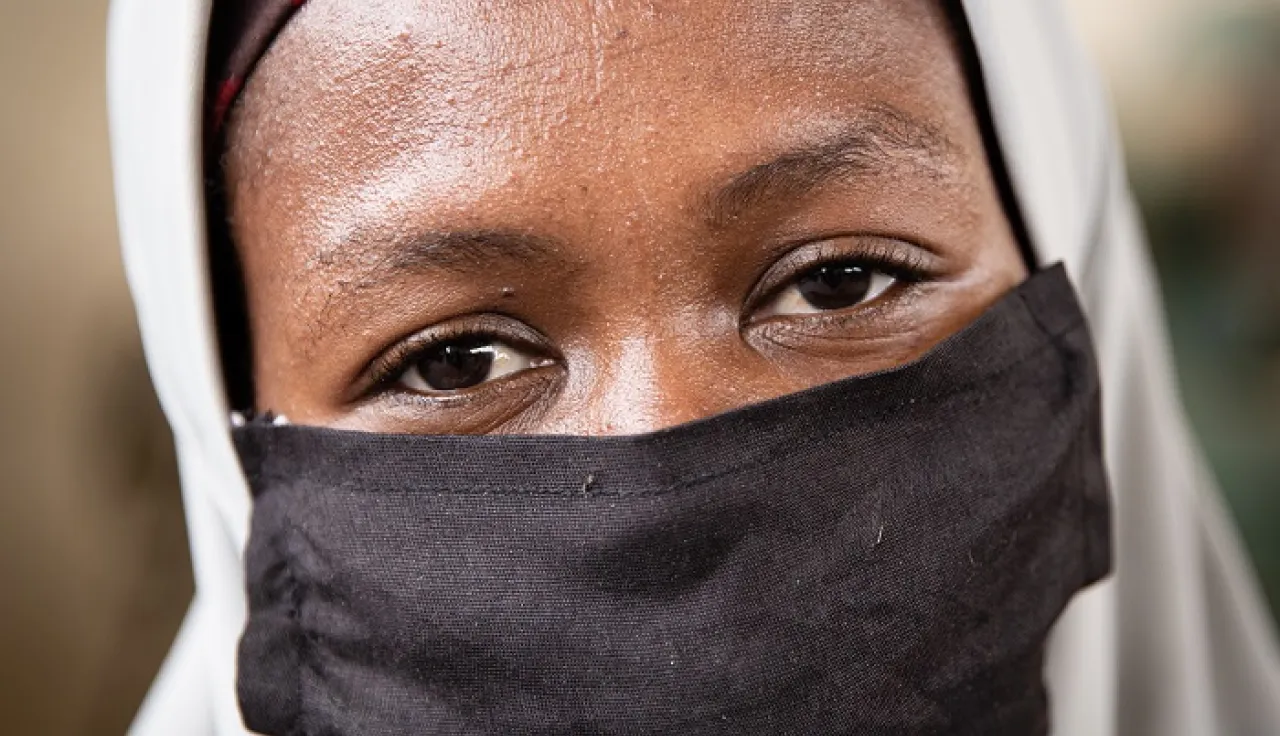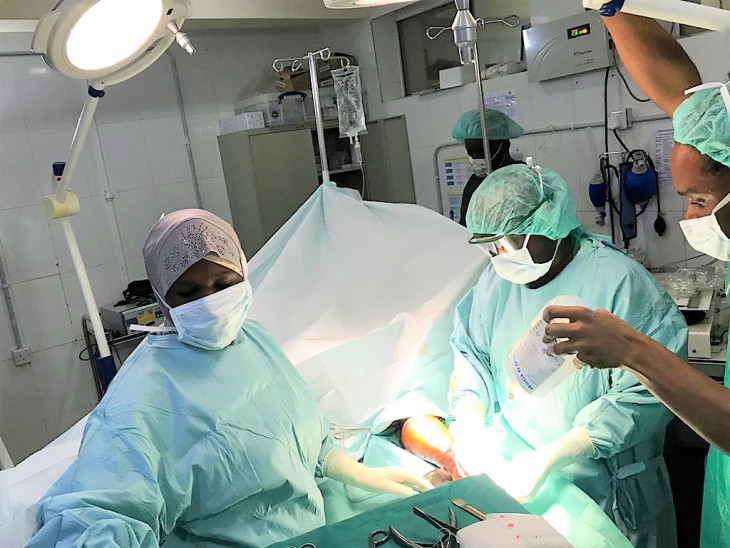Nigeria operational update: Helping vulnerable communities adjust to COVID-19 economic impact

In March 2020, the ICRC quickly adapted its operations in Nigeria to the challenges created by the COVID-19 pandemic. It ensured that people affected by the armed conflict continue receiving vital protection and assistance and, in close collaboration with the Nigerian Red Cross Society (NRCS), contributed to the COVID-19 response.
Displaced people and host communities are particularly vulnerable to the pandemic and the economic impact of the measures taken to curb COVID-19. Prolonged, sometimes multiple displacements, insecurity, difficult access to land and other resources have tested their resilience, stretching it to the limit. One of the ICRC's priorities in April-May 2020 was to distribute seeds and cash to vulnerable farming communities for the upcoming planting season. Some 42,300 households received this assistance despite logistical challenges caused by movement restrictions and complex security environment.
Furthermore, the ICRC responded to the humanitarian needs increased by the pandemic, improving access to clean water and hygiene products, supporting primary health care in conflict-affected areas, working with the authorities to take the necessary preventive measures in detention facilities and supporting COVID-19 response of the NRCS.
Highlighted below are the major activities executed between April and June 2020:
- In coordination with the Red Cross and Red Crescent Movement Task Force, the ICRC in Nigeria provided financial support to the NRCS COVID-19 response plan in 14 states. The NRCS response includes risk communication and community engagement activities (supported by the ICRC in 14 states), as well as health education and hygiene promotion, psychosocial support and community-based surveillance activities (supported by the ICRC in five states). The ICRC provided PPE to NRCS branches in five states and the HQ.
- In collaboration with the NRCS, contributed to raise COVID-19 awareness, disseminate important public health information and fight stigmatization. We delivered COVID-19 related hygiene promotion messages to 23,500 households in Monguno, Damboa, Dikwa and Rann IDP camps. We also distributed 12,000 stickers to keke drivers and organized radio talk shows in Maiduguri.
- The ICRC provided three months' supply of PPE to health personnel in 20 primary health care centres and four isolation centres in the North-East and in the South. We set up handwashing points and donated hygiene materials to these facilities. 300 patients received soap.
- The surgical team in Maiduguri continues treating weapon-wounded patients, with additional measures for early detection and prevention of the spread of COVID-19. The ICRC installed two triage tents at the entrances of the Maiduguri State Specialist Hospital and increased the space between the beds in the surgical ward to ensure sufficient physical distance between the patients. Patients, caretakers and staff are required to wear masks at all times.

ICRC surgeons in Maiduguri continue to treat victims of armed conflict in the region. ICRC.
- Supported the infrastructure of the COVID-19 Isolation Center in Maiduguri. We built the waste management area and improved patient flow by constructing inter-ward pathways. The ICRC provides food for patients and personnel.
- The Physical Rehabilitation Centre in Kano has produced 1000 protective face shields since the outbreak of COVID-19 in Nigeria, using materials available in its stock. The face shields have been donated to hospitals in the region.
- Distributed cash and seeds to some 42,300 vulnerable households affected by armed conflict and other situations of violence to enable them to plant new crops. The distributions were organized in cooperation with NRCS and with the COVID-19 preventive measures in place, such as physical distancing and handwashing.
- Continues to improve access to shelters, hygiene facilities and clean water for displaced people. Improving living conditions and ensuring proper hygiene and access to clean water is one of the key strategies to prevent the spread of COVID-19. 14,000 vulnerable households received soap.

Construction of new shelters for displaced people in Gubio, Northeast Nigeria. ICRC.
- Supported Nigerian Army, Police and Correctional Service by providing general guidelines on preparedness and response to COVlD-19 in places of detention. The guidelines include practical information on measures to be taken by detaining authorities to prevent the spread of COVID-19 and to ensure security in full respect of detainees' rights. The ICRC supported training organized by NCDC for the detention medical staff on preventive and infection control measures.
- Currently setting up "fever clinics" in five detention facilities. We distributed 3,000 COVID-19 information posters in English, Hausa and Kanuri, donated hygiene items to 13,000 detainees and installed 21 handwashing stands in various detention facilities.
- Supports Kirikiri Maximum Security Custodial Center in Lagos with a Soap Production project. Forty inmates and prison staff learnt technical skills and have received raw materials and bottles that enabled them to produce 765 litres of antisceptic soap, 885 litres of multipurpose washing soap, 840 litres of germicide and 300 bottles of sanitizer
- Supports the authorities by providing recommendations on the safe and dignified management of the COVID-19 dead.
- Supported the Nigeria Police Force and the Nigerian Army with guidelines and recommendations on their obligations under international and domestic law when enforcing restrictive measures, such as curfew and confinement. A training video was prepared for the Nigeria Police Force on the necessity of enforcing the COVID-19 related restrictions using non-violent means first and avoiding excessive use of force.
- As the conflict in the North-East intensified, a summary of key safeguards under international humanitarian law (IHL) and recommendations during pandemics was sent to the Nigerian Army, the Department of State Security Services, the Nigerian Human Rights Commission, the Nigerian Emergency Management Agency, National Commission for Refugees, Migrants and IDPs and the members of the National IHL Committee. A short training video summarizing the applicable rules was shared with the Nigerian Army and other interested stakeholders.



